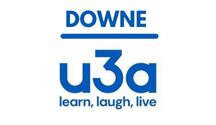Group Organisation
• Make sure you give sufficient information, on the website and in person, for individuals to make an informed choice as to whether they wish to participate and then make their decision, this is particularly important if you are running a physical activity.. You must not make the decision for them or exclude them from a particular activity.
• Remind members if you are doing a physical active subject that they undertake it at their own risk.
• If you are leading walks, use the ‘Walk Leader Checklist’.
• If appropriate to your activity, consult the section on Licenses which covers photocopying, recorded music, DVD’s, video’s and performance.
• If you provide written material and use the U3A logo make sure it is correctly displayed as covered in this guide.
• Delegate where you can to spread the workload. Try to encourage one or more of your members to take a leading role or to run a session from time to time so that if you are unavoidably absent someone can take the session.
Your Members
• Ask your members to provide you contact details, i.e. telephone numbers, e-mail address and to put ICE (In Case of Emergency) against selected contact numbers in their mobiles or carry next of kin details with them. (A copy of a Contact Details forms is available in the ‘Forms’ section.)
• Ensure everybody attending is a member and always check when new faces arrive.
• If you are asked whether a non-member can attend consult the Group Leader Co-ordinator or a member of the Executive Committee first. It is usual to allow a visitor to attend a group once before deciding whether to join your U3A.
• If you have a situation where a non-member turns up, advise the committee afterwards and if a member brings a visitor establish whether permission has been given by the committee. If not, explain that in future for insurance reasons, prior permission is essential.
• If a member stops coming try to find out why.
Groups Held in Outside Accommodation
• Don’t sign any rental agreements – pass to the Treasurer.
• If you are responsible for selecting a suitable venue make sure you consult the ‘Risk Assessment Checklist’ and ‘Supporting Your Members’ section which deals with accessibility for disabled members.
• Use the ‘Venue – Day of Use Checklist’ to reassure yourself everything is in place. If you have any safety concerns do not continue if they cannot be resolved to your satisfaction.
• Make sure you know the postcode for the venue.
• If your activity takes place in a workshop/outbuilding consult the ‘Workshop Risk Assessment Checklist’ (available from the Group Leader Co-ordinator).
Problems
• In the case of an accident which results in injury or damage to property, complete an accident form or in absence of the form send a detailed report to the Committee, including details of any witnesses.
• If emergency first aid is required consult the St John Ambulance guide. If you have a smart phone it may be useful to download a free first aid app from the Red Cross.
• Remember that personal accident insurance cover is not provided by The Third Age Trust.
• If damage is caused to a property by a member of the group, take full details as in future it may be the subject of an insurance claim.
• Should you have a difficult member whose behaviour is regularly disturbing other members of the group go to your Group Leader Co-ordinator as soon as possible after the end of the session.
• If you have a member who is not able to cope independently inform the Group Leader Co-ordinator (see also U3A Members and Companion/Carers)
Other
• If you feel your group would benefit from having a particular item of equipment consult your Group Leader Co-ordinator.
• Use the Resources Section to find free courses on a variety of subjects plus information on using the U3A website and the Resource Centre.
Insurance
• Once a group is set up with the prior approval of your committee you are fully protected by the liability insurance policy provided by the Third Age Trust.
Confidentiality
Names, telephone numbers and email addresses are disclosed to you for the purpose of communications between Group Leaders and members. You should only release such details to other members if you can (1) ask the member whose details are sought if they consent or if the this is not possible (2) satisfy yourself that the reasons for the request are genuine and urgent.
Email
If you are sending an email to your whole group and perhaps other people as well, use Bcc (blind carbon copy) to add group members so that you don’t display their email addresses to everyone else.
The following can make life easier:
Bcc – If you are sending to a group of contacts and you want to keep their addresses private.
Cc – If you want everyone to know all other recipients.
Subject – Include a brief heading which includes Downe U3A e.g. ‘Downe U3A Nature Meeting July’, ‘Downe U3A Nature New Venue’ to make it easier to find the email later.
